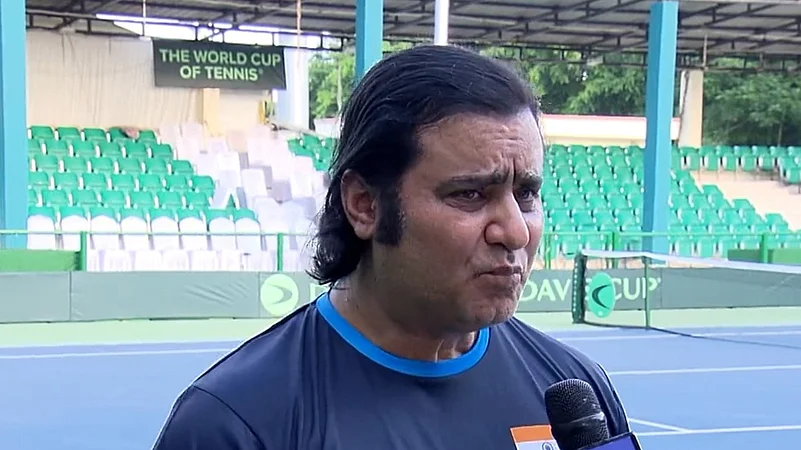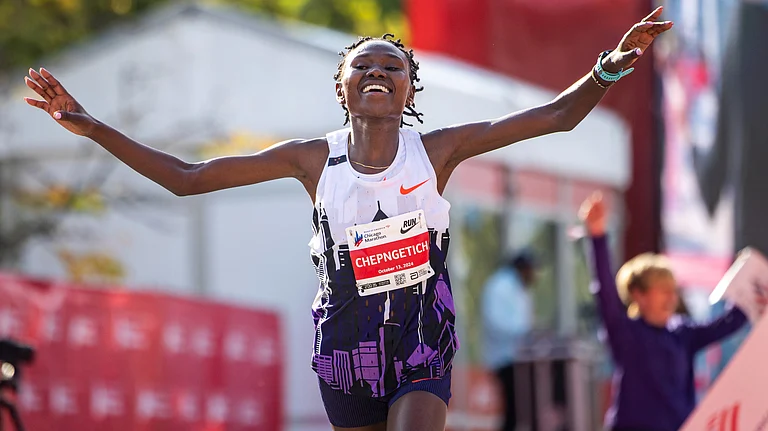The seven-member committee of the Indian Olympic Association (IOA), set up to tackle doping in the country, will recommend the sports ministry to pass a law that will make peddling of performance-enhancing drugs and selling banned substances in open market a criminal activity.
IOA executive council member Rohit Rajpal, who is heading the panel, said organised drug rackets have been playing a part in the dope menace and the committee will make guidelines and recommendations to deal with the matter in a very aggressive manner.
"The IOA is very serious about the doping menace. We (the panel) want to recommend the sports ministry to make a law so that peddling of performance-enhancing drugs and selling these banned substances in open market become a criminal activity. Let's see," Rajpal, a former India tennis player, told PTI on Thursday.
The panel was formed after India's poor doping record was flagged by the International Olympic Committee (IOC) during a national delegation's visit to push for the 2036 Olympic bid.
India had last month topped the World Anti-Doping Agency's 2023 testing figures among countries which analysed 5,000 or more samples with a high positivity rate of 3.8 per cent for banned substances.
Former Athletics Federation of India (AFI) president Adille Sumariwalla was the one who had advocated making use of performance-enhancing substances a criminal offence, but drug cheats are still not liable for penal action under existing Indian laws.
Rajpal, a former Davis Cupper, made it clear that he was not talking about making athletes liable to penal action for doping.
"I am not talking about the athletes but about the drug peddlers. The amount of banned and performance-enhancing drugs available in the market is too high. And organised rackets pushed these drugs all over the country," he said.
"Many of our athletes are from humble backgrounds and don't have much awareness about which drug is permissible to be used and which is banned. That is a problem and we have to work on that aspect also," added Rajpal, who is also the IOA Anti-Doping chairman.
He said that coaches also play a big role in this menace.
Earlier, while addressing an IOA press conference, Rajpal talked about "holistic doping prevention programme" that his committee will look at.
"In recent months there has been growing global spotlight on doping and the challenges athletes face in navigating complex anti-doping rules. While India has made significant strides in the fight against doping through the efforts of NADA, federations and athlete support teams, it is clear that much more needs to be done at grassroots and education level.
"People who are pushing these kind of supplements or performance enhancing drugs, which are second and third generation in this country, it's become an organised racket pushing these drugs all over the country and the athletes mostly don't even know what they are having.
"So, all these areas are going to be attacked by all of us in a very aggressive manner and hopefully we will have a free and fair sport going forward," he said.
He said the IOA is launching a dedicated anti-doping education programme with immediate effect.
"The committee will be responsible for designing and rolling out a sustained anti-doping education and awareness campaign targeting athletes at all levels from grassroots to elite, coaches and support staff, federation administrators and sports officials and most importantly parents and guardians of young athletes.
"The idea here is that through education and awareness, we are going to try to reach the last corner of this country to educate athletes as to what they are using.
"At the same time, there are labs that are being at the moment looked into and analysed. When they can come, more and more testing can happen and those labs can be accredited for this programme," said Rajpal who has earlier served at NADA Anti-Doping Panels.

















